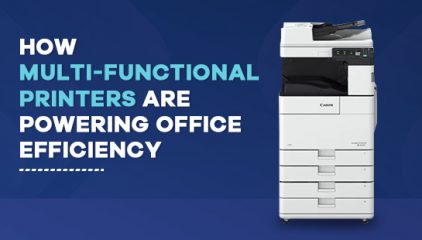The Barcode Scanner Simplifying Operations and Enhancing Efficiency
Barcode Scanners Streamlining Operations and Boosting Efficiency Across Industries
In today’s fast-paced business landscape, the humble barcode scanner stands as an indispensable tool, streamlining operations, and significantly enhancing efficiency across various industries. From retail and logistics to healthcare and manufacturing, barcode scanners have become instrumental in optimizing inventory management, improving accuracy, and expediting processes. Let’s explore the nuances, functionalities, and impactful role of barcode scanners in modern-day operations.
The Power of Barcode Scanning:
Barcode scanners have revolutionized the way businesses manage inventory, track assets, and process transactions:
1. Efficient Inventory Management: Barcode scanners automate inventory tracking, reducing manual errors and ensuring accurate stock counts, leading to streamlined supply chain operations.
2. Expedited Checkouts: In retail environments, these scanners expedite checkouts by swiftly processing product information, reducing waiting times, and enhancing customer satisfaction.
3. Asset Tracking and Management: Barcode scanning facilitates accurate asset tracking, enabling organizations to monitor equipment, tools, and resources efficiently.
4. Error Reduction: By eliminating manual data entry, barcode scanners significantly reduce human errors, enhancing data accuracy and operational efficiency.
Key Features of Barcode Scanners:
1. Barcode Compatibility: Versatile scanners that can read various barcode types (e.g., 1D, 2D), ensuring compatibility with diverse labeling systems.
2. Connectivity Options: Wired and wireless connectivity options, allowing flexibility in usage and integration with different devices and systems.
3. Durability and Portability: Durable, handheld designs suitable for rugged environments, ensuring reliability and ease of use in various operational settings.
4. Scanning Speed and Accuracy: High-speed scanning capabilities paired with precision and accuracy in reading barcodes, enhancing efficiency.
5. Integration and Compatibility: Seamless integration with inventory management software and Point-of-Sale (POS) systems for streamlined operations.
Specifications of Barcode Scanners:
1. Scan Range and Depth: Varied scan ranges catering to different distances between the scanner and the barcode, ensuring optimal scanning performance.
2. Ergonomics and Design: Ergonomic designs for user comfort during extended usage periods, contributing to operational efficiency.
3. Data Capture Capabilities: Some scanners offer additional features such as image capture or OCR (optical character recognition) capabilities for broader data capture needs.
4. Battery Life: Wireless scanners with extended battery life, ensuring uninterrupted scanning operations for prolonged durations.
5. Compatibility and Integration: Compatibility with various operating systems and software platforms, facilitating seamless integration and workflow continuity.
Future Trends and Advancements:
The future of barcode scanning holds promising advancements:
1. IoT Integration: Integration with the Internet-of-Things (IoT) for real-time data transmission and enhanced connectivity across devices.
2. AI-Powered Scanning: AI-driven scanning technologies for improved recognition, even with damaged or obscured barcodes.
3. Augmented Reality (AR): Integration with AR technology for enhanced user guidance and data visualization during scanning processes.
In conclusion, barcode scanners serve as the backbone of operational efficiency, enabling businesses to streamline processes, reduce errors, and enhance overall productivity. With their versatile features, advanced specifications, and continued evolution, these scanners remain instrumental in driving efficiency and precision across various industries in the ever-evolving landscape of business operations.










